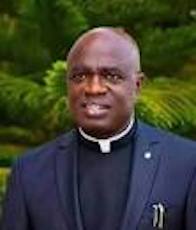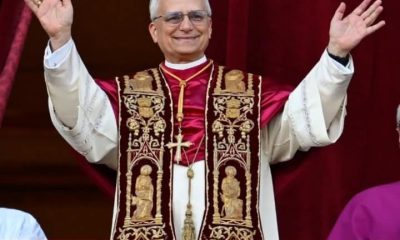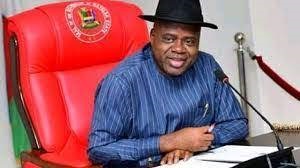COVER
Presidency to New York Times: Tinubu Gov’t Tackling Economic Crisis

By David Torough, Abuja
The Presidency has reacted to a report published in the New York Times criticising the Nigerian economy as facing the worst trajectory in a generation.
Special Adviser to the President on Information and Strategy, Bayo Onanuga, responded on Sunday to the report by Ruth Maclean and Ismail Auwal.
According to the Presidency, the feature story, titled ‘Nigeria Confronts Its Worst Economic Crisis in a Generation’ and published on June 11, reflected the typical predetermined, reductionist, derogatory, and denigrating way foreign media establishments have reported on African countries for decades.
Onanuga stated that due to the ‘misleading’ slant of the report, the government needed to clear up some misconceptions conveyed by the reporters regarding the economic policies of President Bola Tinubu’s administration, which took office at the end of May 2023.
He noted that the report painted a dire picture of some Nigerians’ experiences amid the inflationary spiral of the last year and unfairly blamed it all on the new administration’s policies.
He argued that the report, based on several interviews, was at best jaundiced, portraying all gloom and doom without mentioning the positive aspects of the economy or the amelioration policies being implemented by the central and state governments.
Onanuga emphasized that Tinubu did not create the economic problems Nigeria faces today but inherited them.
“As a respected economist in our country once put it, Tinubu inherited a dead economy.
“The economy was bleeding and needed quick surgery to avoid being plunged into the abyss, as happened in Zimbabwe and Venezuela,” he noted.
He explained that this context led to the policy direction taken by the government in May/June 2023, including the abrogation of the fuel subsidy regime and the unification of the multiple exchange rates.
Onanuga highlighted that Nigeria had maintained a fuel subsidy regime for decades, which consumed $84.39 billion between 2005 and 2022 from the public treasury, in a country with significant infrastructural deficits and a high need for better social services.
He also alleged that the state oil firm, NNPCL, had accumulated trillions of Naira in debts due to unsustainable subsidy payments.
He noted that when Tinubu took office, no provision was made for fuel subsidy payments in the national budget beyond June 2023.
“The budget itself had a striking feature: it planned to spend 97 per cent of revenue servicing debt, with little left for recurrent or capital expenditure. The previous government had resorted to massive borrowing to cover such costs.”
Onanuga further explained that like oil, the exchange rate was also subsidized by the government, with an estimated $1.5 billion spent monthly by the CBN to defend the currency against the unquenchable demand for the dollar.
“This low rate led to arbitrage and failures to fulfil remittance obligations to airlines and other foreign businesses, drying up foreign direct investment and investments in the oil sector.
“To address these issues, Tinubu rolled back the subsidy regime and floated the naira on his first day”, Onanuga said.
Despite initial challenges, Onanuga noted that some stability is being restored, with the exchange rate now below N1500 to the dollar and prospects for further appreciation.
He cited a trade surplus of N6.52 trillion in Q1, as opposed to a deficit of N1.4 trillion in Q4 of 2023, and renewed interest from portfolio investors as indicators of improving economic confidence. Loans from the World Bank, AfDB, and Afreximbank are also contributing to Nigeria’s renewed bankability.
Onanuga highlighted efforts to control inflation, especially food inflation, through increased agricultural production and state-led initiatives to sell food at lower prices.
“The Tinubu administration has invested heavily in dry-season farming and provided incentives to farmers.”
He concluded by comparing Nigeria’s economic challenges with those faced by the USA and Europe, emphasizing that the Tinubu administration is working hard to overcome these difficulties.
“Our country faced economic difficulties in the past, an experience captured in folk songs. Just like we overcame then, we shall overcome our present difficulties very soon.”
COVER
National Census Long Overdue, Now Embarrassment, says Akpabio

By Eze Okechukwu, Abuja
Senate President, Godswill Akpabio has said that Nigeria was long overdue for a national census, adding that the exercise would assist the country in national planning.Akpabio made the remarks while playing host to members and management of the National Population Commission(NPC) who visited him in his office to update him on the preparation for the next Census for the country.
Akpabio told his guests: “I don’t want to call it a national disgrace but can I say it’s a national embarrassment that even Nigerians who go outside to represent us in different fora do not know the number of Nigerians. ”Sometimes you will go to some places and they will say 250 million Nigerians. At another place, they will say you people are over 270 million. Some African countries think we are over 300 million.”If you go to places where they are holding retreat now, they are now shrinking from 250 million to 220 million. I think it’s time to bring that confusion to an end.”Any country that fails to know its population has already started to fail in its planning. You cannot truly plan for the future if you don’t know the number of mouths you want to feed. You do not know the number of children that you want to put in schools. You can’t know the number of classroom blocks you will build.”We must plan. Any country that does not plan for its future has already accepted failure. We will be failing the future generation of Nigerians if we do not begin to plan for the future and start the planning of this Census. This Census is important so that we know how many people we are planning for.”Akpabio assured members of the NPC that the National Assembly would support the Commission to succeed.”It is very important that we support you. The National Assembly will support you to succeed. I have no doubt, with the calibre of men and women that I have seen here, that the task that Mr President has given to you, once the proclamation is done, you will rise to the occasion. And I know that the National Assembly, the Senate in particular, will stand by you all the way,” he said.Earlier, the NPC chairman, Nasir Isa Kwarra who led the delegation said the visit was to keep the Senate President abreast of the stage of preparation and seek continued support of the National Assembly for the next Census.”We cannot conduct this Census without your support. So we will continue to count on your support and we want to make Nigerians proud by conducting a very thorough Census that will yield a lot of data that will assist in planning policy formulation and tracking our development,” Kwarra said.COVER
June 12: Pay Abiola Family N45bn Debt, Lamido Tells Tinubu

By David Torough, Abuja
Former Governor of Jigawa State, Alhaji Sule Lamido has called on President Bola Tinubu to show courage by closing the chapter of June 12 once and for all.According to him, the payment of the N45 billion debt owed to the family of the late presumed winner of the June 12, 1993, presidential election, Chief Moshood Kashimawo Olawale (MKO) Abiola, would serve as a symbolic and moral closure to the June 12 struggle and Abiola’s unjust treatment following the annulment of the election, widely believed to have been won by the late business mogul.
The former Minister of Foreign Affairs made the call while delivering his closing remarks at the launch of his autobiography, “Being True to Myself,” held yesterday in Abuja.“When (General) Murtala (Muhammed) died, Abiola came in with a claim that he was owed, I think, about N45bn for contracts executed by International Telephone and Telecommunication for the Ministry of Communications. The military high command at that time said no.“He went around the Emirs in the North to lobby, and the Emirs asked that they (the military) should please pay the money. They (the military) said they annulled the June 12 elections because if they made him President, he would take his money, and the country would become bankrupt. Those who were close to Abacha should know this because Abacha was then one of the big shots; they were all aware.”“Before I end my remarks, I want to appeal to President Tinubu to finally close the chapter of June 12. In his book, General Ibrahim Babangida acknowledged that Abiola won the election. When I visited him, he also confirmed that Abiola is owed N45 billion. He was doubly punished: first, denied the presidency; second, denied what is owed to him.”Lamido urged the Minister of Information and National Orientation, Muhammad Idris Malagi, who represented President Tinubu at the event, to deliver the message to the President.“Please tell the President to pay the Abiola family the N45 billion. Once this is done, the June 12 chapter will be closed. It is very important,” he stated.COVER
Stable Electricity: Nigeria Needs $10bn Investment Annually for 10 years — FG

By David Torough, Abuja
The Minister of Power, Adebayo Adelabu has stated that for Nigeria to achieve functional, reliable, and stable electricity, the country requires no less than 10 billion dollars annually for the next ten to twenty years.Adelabu made the disclosure yesterday during the commissioning of the 600kW and 3MW Solar PV Power Plant at the Nigerian Defence Academy, Kaduna.
He maintained that there are foundational bottlenecks that have been experienced in the past, which must be addressed for this level of investment to be meaningful. “Number one is the legislative and policy foundation, which this administration has achieved by signing the Energy Bill into law.“This bill has ensured the liberalisation and decentralisation of the power sector, enabling all levels of government to legally and morally play roles in the power sector for the benefit of their citizens at sub-national levels.“This has granted autonomy to more than eleven states, with more expected to follow. These states can now participate in the power sector, from generation to transmission, distribution, and even metering.”“Secondly, we must address the infrastructure deficit, which has accumulated over the last 60 years due to a lack of maintenance and insufficient investment to revitalise our transmission grid.”The Minister also emphasised the need to bridge the over 50 percent metering gap, stating that the Presidential Initiative aims to achieve this through the installation of 18 million meters over the next five years.He said the commissioning of the 600kW and 3MW Solar PV Power Plant at the prestigious Nigerian Defence Academy underscores the Federal Government’s resolve to tackle the electricity deficit.“These projects, implemented by the Federal Ministry of Power and the Rural Electrification Agency, not only underscore our commitment to improving electrification across key institutions in Nigeria, but they are also part of our broader mandate to diversify energy sources, expand access to clean and reliable electricity, and support critical sectors of national development, including education and security.“As an institution that combines academic rigour with military excellence, the Nigerian Defence Academy represents a strategic national asset that must be strengthened through sustainable infrastructure.“Powering the Academy with renewable energy aligns with our vision for a secure, self-reliant, and energy-efficient Nigeria.“It also reflects our commitment to President Bola Ahmed Tinubu’s Renewed Hope Agenda, which prioritises accelerated national development through universal energy access.”The Managing Director of the Rural Electrification Agency (REA), Abba Abubakar Aliyu, described the commissioning of the 2.5MW solar project as “a turning point in Nigeria’s journey towards energy access for learning institutions.”He noted that “the agency is not just commissioning a project, but rather commissioning social impact, research, and sustainable development.”
















